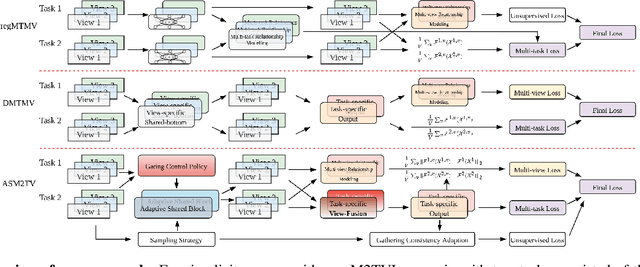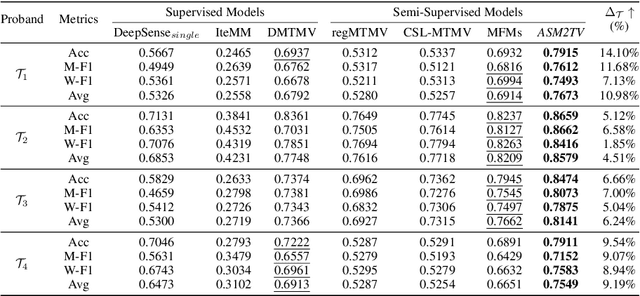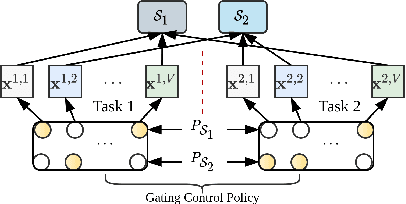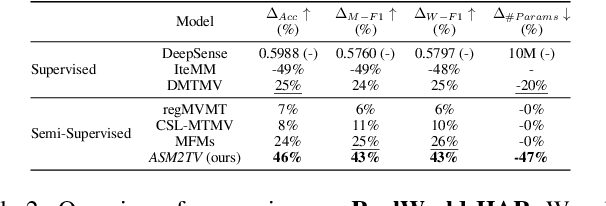Maiwang Shi
ASM2TV: An Adaptive Semi-Supervised Multi-Task Multi-View Learning Framework
May 18, 2021



Abstract:Many real-world scenarios, such as human activity recognition (HAR) in IoT, can be formalized as a multi-task multi-view learning problem. Each specific task consists of multiple shared feature views collected from multiple sources, either homogeneous or heterogeneous. Common among recent approaches is to employ a typical hard/soft sharing strategy at the initial phase separately for each view across tasks to uncover common knowledge, underlying the assumption that all views are conditionally independent. On the one hand, multiple views across tasks possibly relate to each other under practical situations. On the other hand, supervised methods might be insufficient when labeled data is scarce. To tackle these challenges, we introduce a novel framework ASM2TV for semi-supervised multi-task multi-view learning. We present a new perspective named gating control policy, a learnable task-view-interacted sharing policy that adaptively selects the most desirable candidate shared block for any view across any task, which uncovers more fine-grained task-view-interacted relatedness and improves inference efficiency. Significantly, our proposed gathering consistency adaption procedure takes full advantage of large amounts of unlabeled fragmented time-series, making it a general framework that accommodates a wide range of applications. Experiments on two diverse real-world HAR benchmark datasets collected from various subjects and sources demonstrate our framework's superiority over other state-of-the-arts.
 Add to Chrome
Add to Chrome Add to Firefox
Add to Firefox Add to Edge
Add to Edge